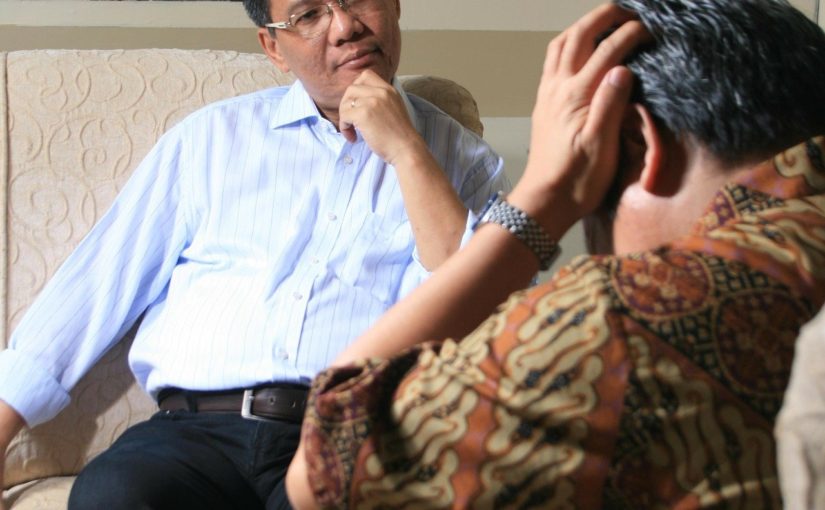Table of Contents
- Introduction to Divorce Counseling
- Stages of Divorce Counselling
- A Stages Rationale
- Support for Divorce as Death Analogy in Divorce Counseling
- A Checklist
- Conclusion
An Introduction to Divorce Counseling
Divorce has been compared to death. But unlike death, divorce has a way of rearing its head repeatedly. Not saying death does not, but where death is a finite event, the enduring collateral damage of the divorce process is not. This may be a reason why divorce counseling is recommended, and at times mandated. Before you continue reading. ask yourself what divorce counseling means to you and then compare your answer after you have read through.

The intention here is to help those in the process of divorce or those who believe that a decision about divorce is inevitable. We will start with a look at the stages of divorce and why understanding these stages will help you choose a counselor that may best suit your divorce counseling needs no matter where you are in your journey.
Stages of Divorce Counseling
When you think of divorce counseling or a divorce counselor what do you imagine? What questions have you asked to prepare for your decision in selecting a reputable therapist. Do you care?
Apparently what we think and where we are in our divorce journey is an important distinction when we are ready to reach out for help. And there is evidence telling us we should.
Esther Oshiver Fisher defines divorce counseling as an answer to the personal and cultural needs of the divorcing and divorced population. It is a therapeutic process by which those who experience and continue to experience the pain and humiliation of divorce can be helped toward personal growth and adjustment.
How and when does the thought of divorcing our partner become a reality. Do we think about it from time to time? What happened to make us think about it? Do we think on it and make plans with the intention of following through?
Just thinking about divorce carries emotional pain. Will I, won’t I? We have decided that it will become reality. Or it may be our spouse who initiates. We may at some point physically distance ourselves from our spouse. Finally, reality sets in quickly when we reach a legal necessity.
The divorce process, like most things, occurs along a timeline. It is in understanding the timeline and identifying at which stage you are, can make a difference in the selection of a therapist, and have you on a quicker path to recovery.
Stage 1 Divorce Counseling

A first or preliminary stage in the divorce counselor spectrum is predivorce counseling. We asked above about your thoughts on divorce. In this stage, divorce is no longer a thought but becomes a reality when one or the other spouse says or does something where divorce is the only option. An extramarital affair for example.
Marriages have survived extramarital affaires, but I use this example because I believe for most it would be a game changer.
The goal of the predivorce counselor and you the client(s) at this time, is to determine to divorce or not. This would be done over time, possibly with the help of marriage counseling if the decision is to not.
It is the distinction between marriage counselor and divorce counselor where Fisher takes issue. She believes the term marriage counselor may lead to confusion on the part of the clients. You may select a marriage counselor to do a divorce counselor’s job.
The term marriage counselor may for some insinuate although they are ready to divorce, the marriage counselor may have some skin in the game in trying to keep the marriage together.
A acceptable term for these counselors might be marriage and divorce counselors. With this moniker, clients might not feel trapped and the counselor is able to move clients forward whichever way the therapy moves.

We are disoriented as our normalcy is brought into chaos. Emotions are high. Here, the counselor must bring order to chaos and lend their strength. And there is no time to waste.
Once emotions have subdued and things are a bit more placid, the counselor will speak of reason and decision. A decision to save the marriage or divorce must be made.
Stage 2 Divorce Counseling
The second stage of the umbrella term divorce counseling is divorce counseling. This stage of counseling focuses on the divorce. If the divorce is handled through lawyers and not mediation or a judge, it is here they will appear.
The counselor may or may not see you as a pair. Things may be less cooperative. Separately will still have benefits, however. There is still a need to see clearly through the emotions we struggle with, concerns about the children, finances or housing.
A divorce counselor’s role here should be to help subdue any conflict or anger that may be occurring, in an attempt to shorten the litigation process. Where spouse’s demands may be elevated because of anger, this stage of counselling would be especially beneficial where fault could be upheld.
Stage 3 Divorce Counseling
Post divorce counseling occurs at or near the end of the marriage contract, Emotions range from elation to loneliness. Things are busy and new. Again, the counselor will be able to guide you through the complexities of post-divorce.
Often, custody schedules, co-parenting responsibilities and money decisions create continued hostility. A counselor will support a smoother post-divorce transition.

A reevaluation of your relationship with your ex-spouse will most likely occur as time passes. Spouses sometimes critique why they entered into the marriage, who that person was and come to terms with any remaining concerns that would hinder the co-parenting to come.
The goal of post-divorce counseling is to empower the divorcing couple to make sound judgements and decisions, to create new systems that lend guidance.
A Stages Rationale for Divorce Counseling
So, you may be thinking, isn’t divorce just divorce? Why break it into stages? Isn’t that silly? Well, think about it for a second. In the beginning emotions are flailing.
Feelings of sadness and guilt prevail. You may even rethink divorce and stay in the marriage, or divorce may be thrust upon you. Sounds like stage 1. And stage 2? After all of the emotion and slogging through, lawyers may get involved and physical divorce occurs.
Then onto the post-divorce era, where you are living in separate homes and hopefully a cooperative co-parenting schedule has been developed.
I believe itemizing the stages of divorce and therefore divorce counseling, allows us to digest the entire process, which is overwhelming, by reshaping it into smaller, more digestible pieces.
Denial
Denial is just that, denying what is happening is not. “This is not happening to me!” Blame may be placed on just being depressed or having a lack of motivation.
For us men, it is helpful to know that it will generally be the wife who will bring up counseling at this stage. If you are at all interested in saving your marriage, it would be a good idea to talk about it.
Evidence exists that supports the cooperation and attendance of both spouses at counseling sessions is most affective. However, this will not occur if one or the other feels “dragged” in.
The counselor’s goal here and yours should be to understand that yes there are difficulties in the marriage.
Anger
Anger is an emotional response and is present if we are injured, threatened or interfered with. During the early stages of divorce, our anger can manifest itself as tantrums or attempts to self-protect.
Getting rid of this emotion is best achieved through catharsis. At this stage you need an outlet to vent in a place where support is available.
Also, understand that the physical displacement of anger through catharsis is necessary, what follows is as important. That is, the goal of being able to function productively.
Bargaining
Bargaining may take place through the entire divorce process but it is here where attempts or appeals at coming to terms with the outcome highlight the bargaining strategy of one spouse or the other.
Be aware of manipulation. Sexual manipulation or the threat of pregnancy are forms of bargaining.
A spouse may demand unrealistic sexual demands or threaten pregnancy where the idea of a child would amend all wrongdoing. Bargaining sometimes takes the form of an offer of a truce and continue as things were.
This may be legitimate. However, knowing that this may not be a genuine offer is in your best interest.
Depression
Depression may be defined as a feeling of hopelessness in the face of a disappointment or loss, to be despondent. Depression associated with divorce can be related to both sadness and pessimism.
It is likely that at this stage a self-deprecating pattern is routine. Negative statements about yourself or references to your inability to carry on define this stage. If you can identify this, then you will help your counselor guide you through.
Acceptance
The name says it all. At this fifth and final stage a spouse accepts the loss and accepts a divorced lifestyle. This is the hope for all counselors and the end goal for a divorcing spouse.
As part of acceptance, we strive to be fully autonomous with a reframed set of values and perspectives, much like “I’m kinda glad it’s over” or a “Let’s now move on” attitude.
Support for Divorce as Death Analogy In Divorce Counseling

Some may have a problem with comparing divorce with death. It would be understandable if someone might take offense I think. They may have lost a loved one and support their argument by stating the obvious; I loved my father but hated my wife! How could they be the same!
But if we look at it through another lens, we might be able to see how the two could be compared.
In Counseling for Constructive Divorce, Donald J. Froland and Thomas L. Hozman reported from their counseling sessions with numerous couples that in fact the divorce as death analogy was supported.
As such, they adopted a counseling model based on Elizabeth Kubler-Ross’ book On Death and Dying. Froland and Hozman indicate that this is a working model and to understand that not all individuals follow each stage one after the other and may be at different stages at different times.
They have found despite this however, that it has been successful in helping divorced and divorcing couples in their practice.
You as the divorced or divorcing seeking or thinking about counseling, it would be helpful to self-analyze in order to verify if you are feeling any of these and where you are in the timeline of the stages.
Knowing and understanding this will help you and your counselor begin where you are and take you to where you need or would like to be.
A Checklist
Here is a checklist that may help you choose the right counselor;
Qualifications and Experience
[ ] What is your professional background and experience in counseling couples?
[ ] Are you licensed and accredited by relevant counseling bodies or associations?
[ ] How long have you been practicing marriage counseling, and what percentage of your practice is devoted to couples therapy?
Approach to Counseling
[ ] What counseling techniques or approaches do you typically use when working with couples?
[ ] How do you tailor your approach to the specific needs and circumstances of each couple?
[ ] Can you explain your philosophy regarding marriage counseling and the goals we might work towards?
Confidentiality and Boundaries
[ ] How do you maintain confidentiality throughout the counseling process?
[ ] What are your policies regarding client privacy and the sharing of information between partners?
[ ] How do you handle situations where confidentiality may need to be breached?
Availability and Communication
[ ] What is your availability for counseling sessions, and how often do you recommend we meet?
[ ] How can we reach you in case of emergencies or urgent concerns outside of scheduled sessions?
[ ] Do you offer any forms of remote counseling, such as phone or video sessions?
Fees and Payment
[ ] What are your counseling fees, and do you offer any sliding scale or discounted rates?
[ ] Do you accept insurance, and if so, which providers do you work with?
[ ] What is your policy regarding missed or canceled appointments?
Client-Counselor Relationship
[ ] How do you approach building a trusting and supportive relationship with couples?
[ ] What should we expect in terms of our interactions and the dynamics of our counseling relationship?
[ ] How do you handle disagreements or conflicts that may arise during counseling sessions?
Referrals and Additional Resources
[ ] Are there any additional resources or books you recommend for couples seeking to improve their relationship?
[ ] Do you collaborate with other professionals, such as psychologists or family therapists, to provide comprehensive support?
[ ] Can you provide references or testimonials from previous couples who have benefited from your counseling services?
Goals and Expectations
[ ] What are realistic outcomes or milestones we can work towards during our counseling sessions?
[ ] How will we measure progress and evaluate the effectiveness of our counseling efforts?
[ ] What role do you see counseling playing in our overall journey toward a healthier and happier relationship?
Follow-Up and Continued Support
[ ] What is your approach to follow-up care and ongoing support after our counseling sessions conclude?
[ ] Are there any tools or exercises you recommend for maintaining a strong and resilient relationship after counseling?
[ ] How can we reconnect with you in the future if we feel the need for additional counseling or support?
A Conclusion to Divorce Counseling
The purpose of writing today was to explain a little about the stages that we experience as we make our way through the stages of divorce.
Knowing and understanding these stages can help us identify where we are as we make our way. Our self-healing diagnosis and understanding can be communicated to a counselor as part of the support process.
Knowing where you are in the undertaking, can also provide you with guidance when you are selecting a counselor that will work for you.
Leave a Comment Below
How do you feel about what you’ve read? Leave a comment below if you would like to tell us about your co-parenting experience! Or if you would like to send a note, use our contact form! Thanks for reading, and come back again!






